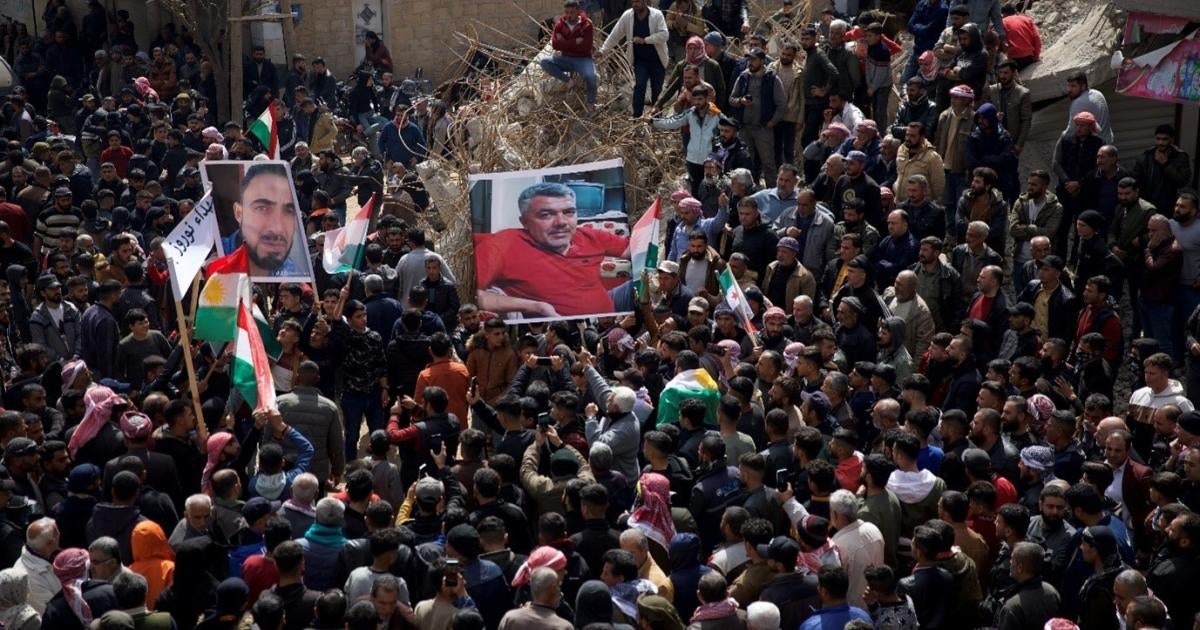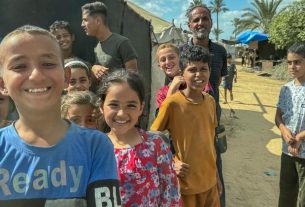(Beirut, March 23, 2023) – Three members of an armed faction belonging to the Turkish-backed Syrian National Army (SNA) opened fire on a Kurdish family in the northern Syrian town of Jinderis on March 20, 2023 as they were celebrating Newroz, the Kurdish New Year, Human Rights Watch said today. Three brothers and a son of one of them were shot dead, another relative is in serious condition, and two others lightly injured.
While the SNA military police division announced the arrest of the three alleged attackers, its factions have also denied any affiliation with them. The group has rarely held its factions accountable for the litany of human rights abuses committed in the past six years.
“These killings come after over five years of unaddressed human rights abuses at the hands of Turkish forces and the local Syrian factions they empower,” said Adam Coogle, deputy Middle East director at Human Rights Watch. “Turkey has allowed these fighters to abuse people living in the areas under their control with impunity, risking making itself complicit in the violations.”
Human Rights Watch spoke to one of the murdered brothers’ surviving siblings, two witnesses to the crime, a neighbor, and a local humanitarian worker in Afrin city near Jinderis. Human Rights Watch also reviewed photos of the bodies and videos taken in the aftermath of the fatal shooting. The four victims are brothers Farhan Din Othman, 43, Ismail Othman, 38, and Mohamed Othman, 42, and Ismail’s son Mohamed, 18. Witnesses and a humanitarian worker with direct knowledge of the incident confirmed that the fighters were part of the Jaysh Al-Sharqiyah faction of the Syrian National Army.
As an occupying power and as a backer of the local factions operating in areas under its control in northern Syria, Turkey is obliged to investigate these killings and ensure that those responsible are held accountable. Turkey should also cut all support to SNA factions implicated in recurrent or systemic human rights abuses and international humanitarian law violations.
Witnesses said that at around 7 p.m. on March 20, as Kurdish families across the earthquake-damaged Jinderis and the rest of Afrin were celebrating Newroz, a verbal dispute erupted between a member of the Jaysh Al-Sharqiyah faction and Farhan Din Othman in front of his family home. Witnesses said that the fighter ordered Othman to put out a small fire on the roof as part of Newroz celebrations.
The fighter then threw a rock at him as he was sitting with his nephew outside, went to the faction’s neighborhood base, in a house just 15 to 20 meters away, and came back with two other men armed. Witnesses say they saw the men shoot indiscriminately at Farhan Din Othman and other family members who had come out to see what the commotion was about, killing him, his nephew, and a brother instantaneously, severely injuring two of his brothers, and lightly injuring two other people. One of the brothers, Mohamed, died later that night, a surviving sibling said. Human Rights Watch reviewed photos of the dead men that show gunshot wounds to the chest, face, and neck.
Later that night, locals transported the bodies to Atma village, where they demanded that Hay’et Tahrir al-Sham, the armed group in control of the greater Idlib area and large swathes of Western Aleppo, seek retribution for the killings. The armed group has over the past year attempted to exploit factional fighting within the Syrian National Army to extend its control in northwest Syria. On March 21, large crowds gathered for the four men’s funeral in Jinderis and to protest the killings, calling for the killers to be held accountable and for the SNA factions to be expelled from Afrin district.
Several groups affiliated with the Syrian National Army condemned the incident, including the Jaysh Al-Sharqiyah faction itself and the First Legion, one of three key legions that unite the various factions. The Construction and Liberation Movement, the umbrella organization for Jaysh Al-Sharqiyah, issued a statement condemning the murders and denying any connection with the movement or any of its components.
Turkish Armed Forces and the Turkish-backed Syrian National Army, a loose coalition of armed opposition groups, invaded and took control of Afrin, a previously Kurdish-majority district of Aleppo, in 2018, leading to the deaths of dozens of civilians and displacing tens of thousands, according to the United Nations. Since then, the more than 40 SNA factions have assumed control of individual villages, towns, or even neighborhoods in Afrin district. Jaysh Al-Sharqiyah controls certain subdistricts of Jinderis, including the neighborhood known as the industrial area, where the crime took place, the humanitarian worker said.
Turkish military incursions into northern Syria since 2016 have been fraught with serious human rights abuses. Despite claims by the Syrian Interim Government affiliated with the SNA that they are taking steps to hold rights abusers accountable, Turkey-backed SNA factions continue to commit grave abuses including extrajudicial killings, pillaging and unlawfully seizing properties, and enforced disappearances. Despite exercising military control over the local factions, Turkey has done little to prevent abuses or improve the factions’ behavior.
“Turkey and the Turkish-backed Syrian National Army in Afrin have consistently failed to protect civilians in northern Syria,” Coogle said. “Ensuring that these killers are held to account in a fair and transparent manner would be a step in the right direction.”



